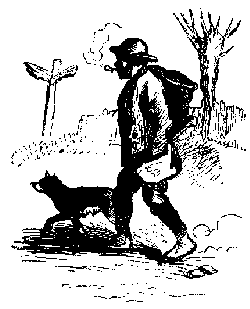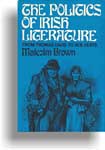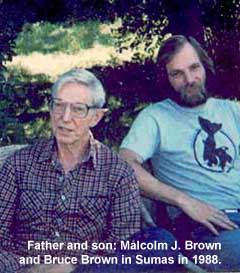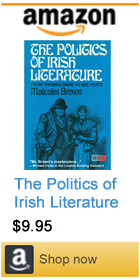Chapter Four
The Nation's First Year
THOMAS DAVIS was methodical to a fault. When he sat down to write a book he inscribed the epigraph first. Duffy found among his papers a fragment of a biography of Wolfe Tone with "Nil desperandum" neatly copied on page I and the rest in order up to the point where death stopped his relentless progress. To bring a soul to Ireland seemed a project amenable to method, and method begins with education: let education commence. The national schools were silent on Limerick and Dungannon: let the omission be remedied forthwith. Irishmen were ignorant of their history: let a popular library of Irish episodes and heroes be published instantly. Irishmen were losing the Irish language: let it be preserved. Davis was the first national leader to see the incendiary political potential of the native tongue, whose survival was of no concern to O'Connell, though unlike Davis he did actually speak it. "What! give up the tongue of Ollamh Fodhla?" Davis asked. "No! oh, no! . . . A nation should guard its language more than its territories."
Turning to the arts, he pondered the degraded state of Irish sculpture, recommending that Trinity College acquire and display a plaster cast of every beautiful piece of sculpture in the world in order to inspire any patriot sculptors who might happen along. To the painters he sent a list of seventy-two patriotic scenes to be rendered in oil as soon as feasible, covering Irish history from the landing of the Milesians to O'Connell on the Clare hustings. He sketched a project to place a patriotic engraving on the wall of every peasant cabin, carrying out Goethe's theory that the organic soul ought to "see a fine picture" every day.
II
A nationalist school of verse had a more substantial tradition to start from. The embryo of the Irish poetic mystique had already appeared a generation before Davis in the songs of Tom Moore. Responding to the gloom that settled over Dublin in the first years of the Union, Irish Melodies had embraced defeat and made a good thing out of it, transforming it into the sweet habit-forming enticement that exudes out of "The Harp That Once through Tara's Halls" and "Let Erin Remember" and less winningly from some of the rest of the lyrics that Joyce called Tom Moore's "Irish Maladies." His characteristic tone is heard in the keening of the stragglers on a battlefield in a song called "After the Battle":
- The last sad hour of freedom's dream
- And valor's task mov'd slowly by,
- While mute they watch'd till morning's beam
- Should rise and give them light to die.
- There's yet a world where souls are free,
- Where tyrants taint not Nature's bliss:
- If death that world's bright opening be,
- Oh! who would live a slave in this?
These verses would cure anybody's euphoria, but some might think them too dismal altogether. The trouble with Moore, Davis said, was that he "too much loves to weep."
By 1842 Moore's exhausted Irish muse had long since surrendered the Dublin cultural front to a new breed of youth. Ten years before the Nation, a little group of Tory juveniles at Trinity College had started a politicalliterary monthly called the Dublin University Magazine. Learned and lively, it caught on and established itself for a long happy life as a junior contemporary of Blackwood's Magazine, Fraser's Magazine, and the Quarterly Review. The new magazine attached itself to the Irish Protestant Ascendancy as an intellectual house organ, so to speak. The first article in the first issue, in January 1833, was entitled "The Present Crisis." And what crisis was it? It was the destruction of Irish civilization by the Clare election, the British Reform Act of 1832, and the tithe war. O'Connell haunted the contributors; they could not shake him off their minds. They also expressed a sullen but reserved distrust of England and produced a peppery assortment of Orange phobias, especially against the fertility, superstition, inveracity, slovenliness, greed, and vulgarity of the "papists."
For a garnish to dignify these Ascendancy attitudes, the magazine took great pains with its artistic and cultural pieces, following out the theory (later adopted by Yeats) that good taste is the foremost stigmata identifying a proper ruling caste. But at the end of its first year of publication, in December 1833, the magazine's literary department had not yet come up to expectations. It promised, though, that the flatness of its Horatian translations and Trinity sonneteering would soon be remedied by fresh native talent. After all, it said, Ireland was "the birthplace of song, where poetry is almost literally the prose of the Irish peasant, and the harp is the national designation." The editor responsible for the new tack was Isaac Butt of Donegal, a name that will break into our historical narrative many times as he drifts from championship of the Orange Order into nationalism and at last into the top nationalist leadership. For poetry in the native Irish mode his advocate was Samuel Ferguson of Belfast, a friend and Trinity classmate of Davis. Three months after the new policy began, the readers had the rare pleasure one day in March 1834 of turning the page and finding a fresh addition to the immortal lyrics of the English language, Ferguson's "Fairy Thorn..."
|
|
Table of Contents
|

|
Astonisher.com is pleased to offer these excerpts from The Politics of Irish Literature by Malcolm Brown...
Praise for
The Politics of Irish Literature |
 |
|
"This brilliant study of the intersection of politics and literature in Ireland amounts to a dazzling portrait gallery. Reading it one feels about one the breath, warmth, and passions of the dead all come alive again."
-- Sean O'Faolain in the Manchester Guardian
"Mr. Brown's masterpiece has made me want to hire a nearby housetop and recite whole chunks to every passerby..."
-- Michael Foote in the London Evening Standard
"The author of the best book on George Moore now gives us what is in all likelihood the best book on the politics of modern Irish literature."
-- Virginia Quarterly Review
|
|

University of Washington Professor Malcolm J. Brown (1910 - 1992) with his son, Bruce Brown, in Sumas, WA, July 1988.
|
Additional reading -- Malcolm Brown's George Moore: A Reconsideration. Also see Bruce Brown's commentary on The History of the Corporation for Malcolm Brown's contribution to that work.
|
|
|






